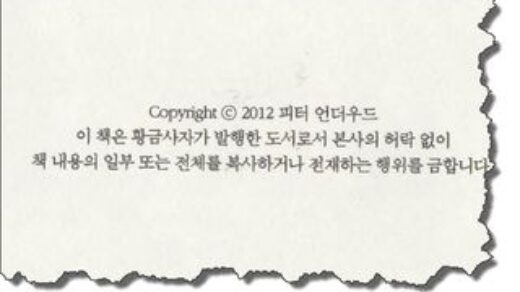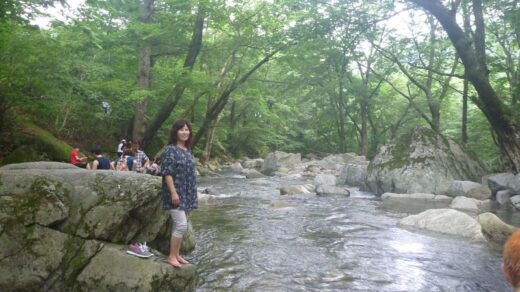
KBC Intern Jared Muloongo interviewed global recruiter Sal Michal as part of his research in preparing the report “A Map to a Career in Korea: What You Need to Know!”. The following is the original Q&A for the interview.
For links to this and other interviews in the series, visit Supplementary Materials for A Map to a Career in Korea: What You Need to Know!”
Ten Keys to Master that Will Put You in Front When Finding a Job in Korea
1. Does GPA / great academic results matter when applying for a job in Korea?
I wouldn’t say that GPA is the key factor in candidate selection in Korea. The fact that you one got the degree from well reputed school would be certainly given far more weight than the academic results.
2. Korea is big on ‘Woori’ so when hiring an individual does personality matter? What Kind of personality is needed to be able to work in a Korean firm?
Yes. Personality does matter a lot. Even though Korean corporations like to call themselves “global” the truth is that they are and will remain very Korean in their core. That means personality traits like loyalty, humbleness, respect, obedience, and understanding of Korean culture etc. often tend to be valued more than professionalism. Even though as a foreigner working in Korean company there will be some tolerance towards your “uniqueness” in most cases you will still be expected to adjust to Korean corporate culture and possess the above traits.
I would say that majority of Korean managers would certainly avoid working with foreigner who exhibits too much self-confidence, individuality, etc. as they would see it as an incompatible element that could only endanger their team harmony.
3. How does one get noticed or become visible to Hiring managers in Korea?
People who have verifiable record of some professional relation to Korea would be given priority in most cases. If one graduated Korean university or worked with Koreans before s/he will definitely have great advantage over someone who doesn’t have this experience.
4. How does one utilize the network they gain wisely in order to gain a Job? Now that you have a network and you are maintaining it. What do you do?
In Korea, probably more than in the West, significant portion of job vacancies are filled through personal connections, recommendations, etc. rather than through the regular job-advertising and fair candidate evaluation and selection. In other words, it will often be more important who knows you than how talented and well prepared you are.
Keeping the connections alive and expending the network is important especially for a job seeker. Even though it might seem time consuming it’s very useful to attend professional gatherings, etc. as well as keeping in touch with your other connections. As a job seeker who doesn’t speak Korean you may want to start with attending gatherings of foreign professionals working in Korea.
5. What are some great resources to have and to use in gaining a job in Korea? KBC is a Great resource how would you as a hiring manger look for potential candidates to hire? How can potential candidates use a resource like KBC in your opinion to get noticed?
KBC is indeed great resource, but I have not tried to utilize it for candidate search yet..
KBC has lots of valuable resources for job seekers all available at one place as well as links to other useful websites (I wish I could have used it back in 2008 when I was getting ready to come to Korea!), but rather than a mean to get noticed I would say that it’s a great place to learn about Korea and its’ business culture and reality.
Additionally, I would suggest including more resources about studying in Korea as this may be the first step to succeed here for many foreigners (for example information about available scholarships, foreign student statistics, etc. would be nice)
6. What kinds of resumes/ C.V’s get noticed in Korea?
a. Which people should be reading my resumes in order to help me gain an advantage in Korea?
Hiring managers, team leaders (not necessarily from the company you intend to apply for), professors and other “influencers” from your network who can recommend you
b. What things can one do to their Resume / CV to get noticed?
In Korea it is a common practice that the company will ask you to fill their own resume form and include your photo with it (yes, your look is very important so you should include a nice photo)
Let them know you have some relation to Korea. Writing cover letter / email in Korean to let them know your Korean is good enough can be helpful (however don’t lie about your Korean skills as they will certainly find out when you come to the interview)
7. There is no substitute for practice before an interview, what can individuals expect to be asked when applying for a job in Korea? Do you have 5 easy tips for them to remember?
- Korean job interview is very different from what we are used to in the west. You can expect that they will ask you pretty much anything, including very personal questions and questions that are prohibited by law in other countries. (for example questions like “Do you have a girlfriend?” or “How many shots of soju can you handle?” “What is your religion?” are very common)
- Remember that you are applying for job in Korean company. Letting them know you have some knowledge about Korean culture can help a lot. For example little bow when entering the interview room would be appreciated.
- Make sure the interviewer understands your English. The fact that interviewer asks you question in English doesn’t mean s/he is able to understand more complex sentence or professional vocabulary.
- No matter how inappropriate is the question, do not show your anger or arrogance. Remember that most Koreans do not have much knowledge about foreign culture or experience dealing with foreigners.
- If you are aiming for one of the big corporations you should be aware that recruiting process for foreigners takes extremely long (it may take as long as 3 months from the first document screening until the day you will officially get hired).
8. What positions should individuals seek to apply to when they are trying to get into the Korean job market? Any recommendations for individuals with very little work experience?
- Engineering majors are in great demand
- Overseas sales / purchases / marketing targeted to your home country
- Of course there are always lots of teaching opportunities for native English speakers
- For people with doctorate degree teaching at the university can be very good option to consider
9. We know work experience is a factor in getting hired, when individuals have little or no experience what can they include in their Resumes to show that they have the necessary skills to make up for the lack of work experience?
- Show them your motivation to work for specific company and to work in Korea
- Prove that you have the personality traits discussed above
10. What things should foreigners expect to find when they get a job in Korea? The reason behind the question is to gain an extra advantage by being able to show a unique understanding of the Korean work environment.
Korean corporate culture is quite different than the western one where you would expect to be free after working hours. Few examples of differences would be:
- Company dinners and drinking parties (hwesig) in which you are expected to participate
- So called “noonchi”, which basically means you should sense what is appropriate (for example: you are expected not to leave the workplace immediately even though the working time has finished; you are expected to eat lunch with your team members, etc)






